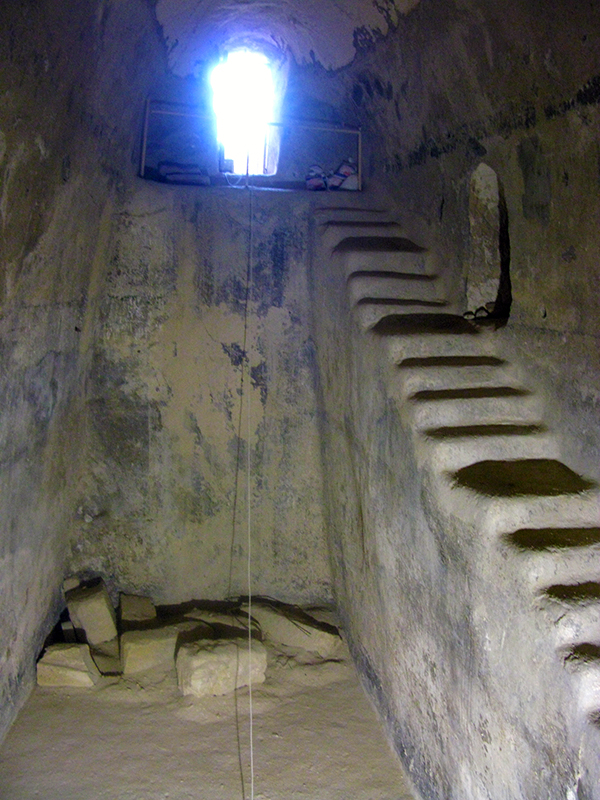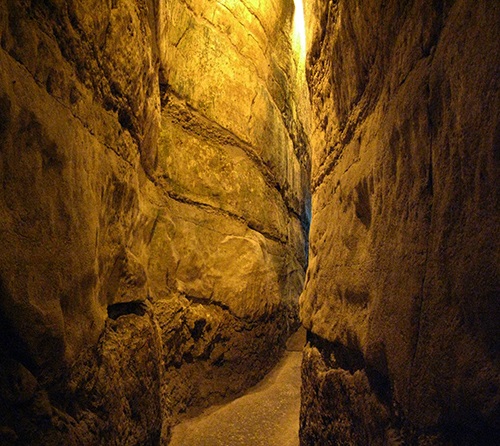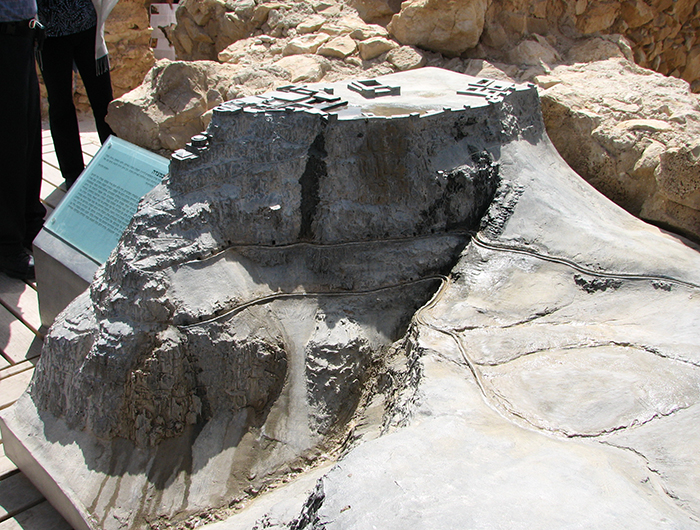
Translating the Hebrew word bor, the cistern was an underground pits, hewn and water-proofed with plaster, for storing water. The frequency of the word, appearing about 70x in the OT, is an indication of how crucial cisterns were for life in arid Palestine. Jer 14:3, e.g., tells us what happened when the "nobles send their servants for water; they go to the cisterns but find no water. They return with their jars unfilled; dismayed and despairing, they cover their heads." That could not have been the only time this happened in ancient Israel.
Scarse most of the time, water, from whatever source was conserved whenever possible. The underground cisterns were a crucial means of storing any water they can get for times when drough threatens as summers always do. Rain comes in Palestine only during the winter months, a spell of a few weeks in late October-November, known as the "early rain," and another during late March-April ("the latter rain"). In private households, the flat roof maximize the collection of this water which is then chanelled into the cisterns. A flight of stairs provided access to the water thus stored.

An underground cistern beneath Herod's palace at Herodion
At a community level, carefully planned channels, built of strategically lined rows of stones, convey rain running off valleys into public cisterns. When Herod enlarged the temple in Jerusalem, hugh amounts of water were brought in via aquaducts and stored in hugh cisterns beneath the temple mount. Massive channels also bring water in from the hills from the north, some of which may still be seen in the Western Wall Tunnel today. This method was used at Masada, Herod's fort in the Judean desert, allowed it to withstand siege, for years if necessary.

An underground channel beneath the Western Wall Tunnel
Kept for years sometimes these supply were inevitably stagnant and stale, and not infrequently silted as well. They thus stand in contrast to the "living water" of the streams and brooks. Cisterns were also good places to hide in from invading enemies (e.g., 1 Sam 13:6), the bodies of those you wish to murder, as Joseph's brothers intended to do to him (Gen 37:20) and as the rebels did in the time of Jeremiah (41:7-9). Jeremiah himself nearly became such a victim (38:7-13). Most poignantly Jeremiah pictured Israel in her idolatry as having committed two sins: "They have forsaken me, the spring of living water, and have dug their own cisterns, broken cisterns that cannot hold water" (Jer. 2:13 NIV).

This model of Masada shows the channels Herod had built to convey water from the surrounding hills to underground cisterns below his stronghold in the desert.

©ALBERITH
040317lch